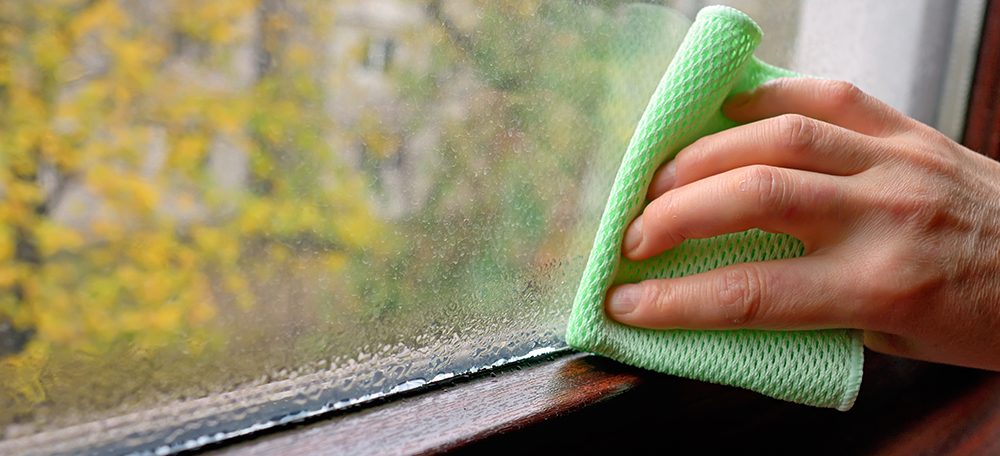Mold is sneaky. To find it, check in these unusual places that provide mold with the water and food it needs to grow.
It’s not a shock when mold shows up behind drywall after a flood or covers baseboards in damp basements. But mold can surprise you and hide in unexpected places, making it harder to detect and wipe out.
To get rid of mold, think like a fungus and search out these six moist places where mold likes to grow.
1. Chimneys
Why mold grows there: Brick crevices collect water, dirt, and other organic debris. Rusted chimney caps and faulty flashing lets in rain and snow, encouraging mold to grow.
How to wipe it out: First, replace rusted caps and fix flashing. Then, call a chimney sweep to give your chimney a thorough cleaning. A $200-$300 annual visit from a chimney sweep not only removes mold, but also keeps your chimney free of dangerous creosote and helps it operate at peak efficiency.
2. Refrigerator Drip Pans
Why mold grows there: It’s a rarely noticed place under your fridge that collects moisture and food spills, a perfect environment for mold to grow.
How to wipe it out: Cleaning drips pans should be part of your annual deep cleaning ritual. Spray the pan with a hydrogen peroxide solution (1 teaspoon hydrogen peroxide in 1 cup water). Wipe clean with a rag soaked in white vinegar. Also, clean the floor beneath the pan.
3. Front-Loading Washing Machines
Why mold grows there: The gasket around the door on front-loading washing machines often stays wet because the door is usually closed when not in use. Add some lint to the moisture, and mold happily munches and multiplies.
How to wipe it out: Wipe the gasket and glass dry before you shut the door. If you spot mold, run a hot water wash with some chlorine bleach (no clothes), which will kill the fungi.
4. Window Sashes and Seals
Why mold grows there: Condensation provides the moisture mold loves; dirt and dust supply food.
How to wipe it out: After heavy rains, open windows and wipe moisture from the bottoms of sashes and window sills. If seals between panes are failing, you’ll have to repair or replace window sashes to prevent condensation. Regularly clean windows to deprive mold of food.
5. Dishes
Why mold grows there: When you stack dishes that are a little wet and a little cruddy, mold has the perfect environment to grow — especially if you don’t use those dishes every day.
How to wipe it out: Run moldy dishes through the dishwasher, and wipe cabinets with a vinegar-soaked rag. Completely dry dishes before you store them.
6. Air Conditioners
Why mold grows there: Air conditioning units trap dust and pollen (a good meal for mold) and grab moisture from the air. If you don’t run your AC unit at least every 24 hours in warm weather, humidity in your house climbs and mold may grow in AC ducts and drain pans, and on coils.
How to wipe it out: If mold grows in your central air conditioning unit, you’ll have to hire a mold remediation pro to clean out the system ($400-$1,000). If mold shows up in a window AC unit, remove the front plate, clean the blower with a HEPA filter vacuum, and flush out the coils and clean the drain pan with a 1:1 solution of bleach and water.
Of course, prevention is the best remedy. Run your AC for at least 10 minutes every day to keep air circulating when it’s hot and humid outside, and keep the humidity in your home below 55%.
Article Courtesy of: HouseLogic.com

